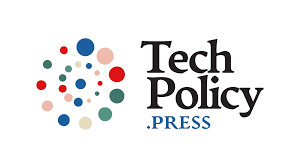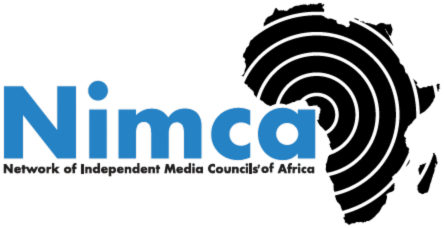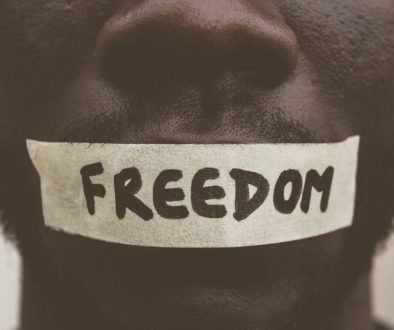Washington raises questions about how far tech rules should extend
 In mid-July, the United States revoked the visas of several Brazilian judicial officials, including Supreme Federal Court Justice Alexandre de Moraes, accusing them of leading a ‘persecution and censorship complex’ that not only ‘violates basic rights of Brazilians, but also extends beyond Brazil’s shores to target Americans’.
In mid-July, the United States revoked the visas of several Brazilian judicial officials, including Supreme Federal Court Justice Alexandre de Moraes, accusing them of leading a ‘persecution and censorship complex’ that not only ‘violates basic rights of Brazilians, but also extends beyond Brazil’s shores to target Americans’.
Brazil’s President, Luiz Inácio Lula da Silva, slammed the decision as ‘arbitrary’ and ‘baseless’, calling it a violation of his country’s sovereignty.
The move, announced by US Secretary of State Marco Rubio on 18 July, marks the first use of a new policy aimed at foreign officials involved in what the Trump administration says are efforts to censor protected expression in the US, including ‘pressuring American tech platforms to adopt global content moderation policies’.
Pushback from the US comes as online safety laws are moving ahead in several major jurisdictions, with enforcement mechanisms already in motion.
In the UK, companies have completed their first round of illegal harms risk assessments under the Online Safety Act (OSA) and are expected to finalise children’s risk assessments next. The UK’s communications regulator, Ofcom, just launched nine new investigations under the law in June.
In the European Union, the European Commission is pursuing enforcement under both the Digital Services Act (DSA) and the Digital Markets Act (DMA), including formal proceedings into potential non-compliance by large online platforms
In parallel, the global expansion of tech regulation has introduced a number of international initiatives aimed at regulatory coordination.
Initiatives such as the Global Online Safety Regulators Network (GOSRN) and UNESCO’s Global Forum of Regulators (GFR) have been actively working to support alignment among regulators on platform regulation and online harms.
While the Trump administration claims its visa restriction defends free speech and national sovereignty, the visa restrictions on foreign officials are more than just a diplomatic warning — they’re forcing regulators worldwide to take stock.
The State Department, in an email to Tech Policy Press, described the visa restriction policy as a ‘global policy’, but singled out the DSA, saying the US is ‘very concerned about the DSA’s spill-over effects that impact free speech in America’.
Reiterating Rubio’s announcement, a spokesperson said, ‘We see troubling instances of foreign governments and foreign officials picking up the slack’, adding that the DSA’s impact on protected expression in the US is ‘an issue we’re monitoring’.
By targeting foreign officials they accuse of censoring speech on US soil, Washington is raising questions about how far enforcement of tech rules should extend, and what diplomatic fallout might follow
How are regulators navigating these tensions, and what does it mean for international cooperation on platform regulation?
The EU has so far made no move (at least publicly) to adjust course. While the US continues to express concern that parts of the DSA could chill protected expression in the US, Brussels continues to position the law as a model for global digital governance.
As part of its international digital strategy, published last month, the EU committed to promoting its regulatory approach in bilateral and multilateral forums, as well as sharing its experience in implementing it. It said it will organise regional events ‘with international organisations, third-country legislators, regulators and civil society to promote freedom of expression and safety’.
Various public statements by EU officials suggest the stance is unlikely to soften. But concerns around sustained enforcement are beginning to surface internally. This concern has gained traction amid reports that the European Commission is delaying its DSA probe into X ahead of a 1 August deadline linked to trade talks with the US.
The US visa policy may not mention trade, but it’s pushing regulators to rethink how their tech rules play on the global stage.
In South Korea, the US has raised significant objections to the government’s proposed Online Platform Fairness Act, which aims to rein in the dominance of major tech platforms and protect smaller market players. The legislation has emerged as a central issue in the two countries’ ongoing trade negotiations, with officials reportedly viewing it as a greater hurdle than traditional market access topics like agricultural imports.
South Korea’s President, Lee Jae Myung, has committed to advancing these reforms as part of a broader push to strengthen oversight of both domestic and foreign tech giants. Yet, US lawmakers argue that the bill closely mirrors the DMA and disproportionately impacts American companies.
South Korea’s ruling party is said to be reconsidering the pace of its antitrust efforts on US tech companies such as Google, Apple and Meta, amid concerns about the potential fallout on trade talks and diplomatic relations.
Similarly, Canada postponed plans to implement a digital services tax following sustained bilateral trade talks with the US, highlighting how US concerns are increasingly influencing the enforcement of tech laws worldwide.
Are US policies prompting regulators to rethink the global impact of their tech rules?
As global regulators move forward with enforcement under new online safety laws, some are taking extra care to clarify the limits of their authority. Owen Bennett, Head of International Online Safety at Ofcom, emphasised to Tech Policy Press that freedom of expression remains ‘core to what we do’.
He highlighted built-in protections within the OSA and systematic assessments of unintended impacts on speech and privacy. ‘The OSA requires only that services take action to protect users based in the UK – it does not require them to take action in relation to users based anywhere else in the world.’
As platforms navigate overlapping compliance regimes, the US is amplifying concerns that some enforcement efforts risk appearing politically motivated or extraterritorial in scope. Ofcom said it actively monitors how companies balance UK rules with obligations elsewhere
Australia’s eSafety Commissioner voiced similar concerns, calling for proportionate and rights-respecting regulation while underscoring the need for global alignment.
Through forums such as GOSRN and the Global Partnership for Action on Gender-Based Online Harassment, both regulators say they are working to promote coherent, non-duplicative enforcement, even as the geopolitical climate makes that harder to sustain.
‘It’s reassuring to see governments around the world taking steps to protect their citizens from online harms, including the US through the Take It Down Act,’ an eSafety spokesperson told Tech Policy Press, ‘but we’d welcome even more governments considering the role of proportionate, human rights-respecting regulation to address the more egregious online harms’.
UNESCO, which developed the Guidelines for the Governance of Digital Platforms, flagged growing concern that major technology platforms, particularly US-based firms, may be walking back earlier commitments to user safety and governance standards, amid waning ‘political pressure and a discernible shift towards a less regulated environment’.
Last year, the UN agency launched the GFR, bringing together 87 national and regional bodies to coordinate an international approach to platform governance. In response to the deregulation trend, a UNESCO spokesperson said regulators involved in the initiatives it leads are rethinking their engagement strategies, emphasising direct communication with platforms and alignment on co-regulatory goals.
A recent US trade report flagged a range of legislation — including digital taxes and data protection laws — in more than a dozen countries, from Canada to Kenya, as potential obstacles to digital trade
Trump’s efforts to frame foreign regulations covering US tech companies as censorship or trade barriers are challenging countries to rethink how their digital rules are perceived abroad.
Brazil’s sharp pushback against the US visa policy suggests some governments may simply reject the Trump administration’s interpretation of digital regulation as censorship or protectionism.
PICTURE: Nataliya Vaitkevich/Pexels
This article was first published here




